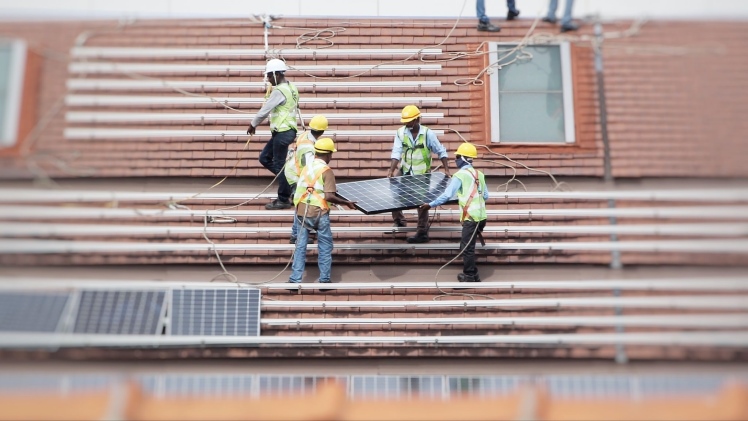Australia is a great place for solar power – the country has a lot of sunshine, and the government offers incentives for people to install solar panels. With this in mind, we want to discuss how solar works in Australia because the science behind solar panels often goes forgotten. While lower energy bills and a healthier planet are attractive, you may want to learn more about the actual process.
How Do Solar Panels Work?
Solar panels work by using photovoltaic (PV) cells to convert the energy from sunshine into direct current (DC) electricity; the DC electricity is then converted into alternating current (AC) electricity which is used to power your home or business.
The PV cells are made up of layers of semiconducting material such as silicon which absorbs the sun’s rays, causing electrons to flow and generate direct current electricity. This DC electricity is then routed through an inverter to convert it into AC electricity that is compatible with your home or business electrical equipment.
Where Can Solar Panels Be Installed in Australia?
In Australia, solar panels can be installed on rooftops or in open spaces, such as a backyard. It is important to ensure that the location for solar panel installation receives maximum sunlight throughout the day and does not receive too much shade from trees or buildings. The size of the space available for installation will determine how many solar panels can be installed.
Can Solar Panels Work Without Sunshine?
Solar panels are designed to generate electricity from the sunshine, so they will not work without sunshine. However, some solar systems come with battery storage options that store energy generated by the sun during daylight hours and save it for use when needed at night or on cloudy days.
Over the years, solar panels have only grown in efficiency. Even when you think solar panels are not performing well due to the shade, a high-efficiency panel can still generate electricity. Therefore, it’s important to get tailored advice from a company like Penrith Solar Centre before making any decisions.
What are the Benefits of Solar in Australia?
Solar power has some great benefits. Not only does it reduce your energy bills, but it also helps the environment by reducing carbon emissions. Solar is also a renewable source of energy and is becoming increasingly more affordable. Additionally, the Australian government offers rebates and incentives to further reduce costs.
Installing solar panels also increases the value of your home; this means that if you ever decide to sell your property, you can get a higher price than with a non-solar house. Furthermore, solar can provide you with backup power in times of emergency or blackout.
How Do Solar Backup Batteries Work?
Solar backup batteries are an important component of the solar power system because they store excess energy from the solar panels and provide it during times of demand or outage. Batteries come in various sizes, so you can choose what best suits your needs. For example, a small battery is suitable when you only need to power a few lights while a larger battery can provide enough energy to power your entire home.
When shopping for batteries, you should consider the type of battery, as each has its own features. The two main types are lead-acid and lithium-ion batteries. Lead-acid batteries are affordable, but they require frequent maintenance and need to be replaced often. Lithium-ion batteries provide a longer lifespan with minimal maintenance and are more efficient than lead-acid batteries, but they are usually more expensive.
With this, you hopefully now understand more of the science and logistics around solar panels.

